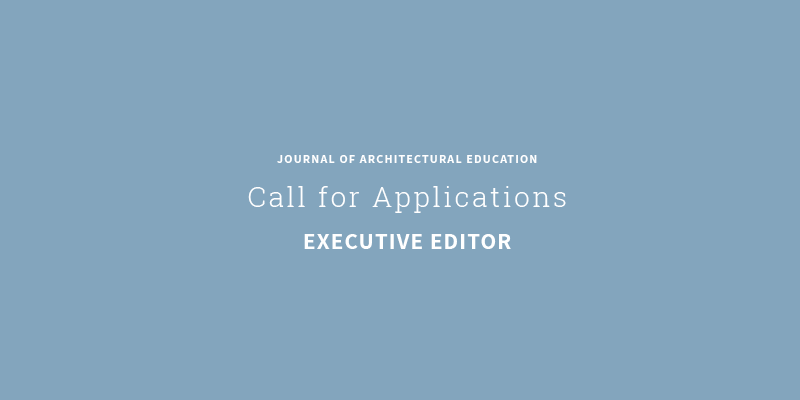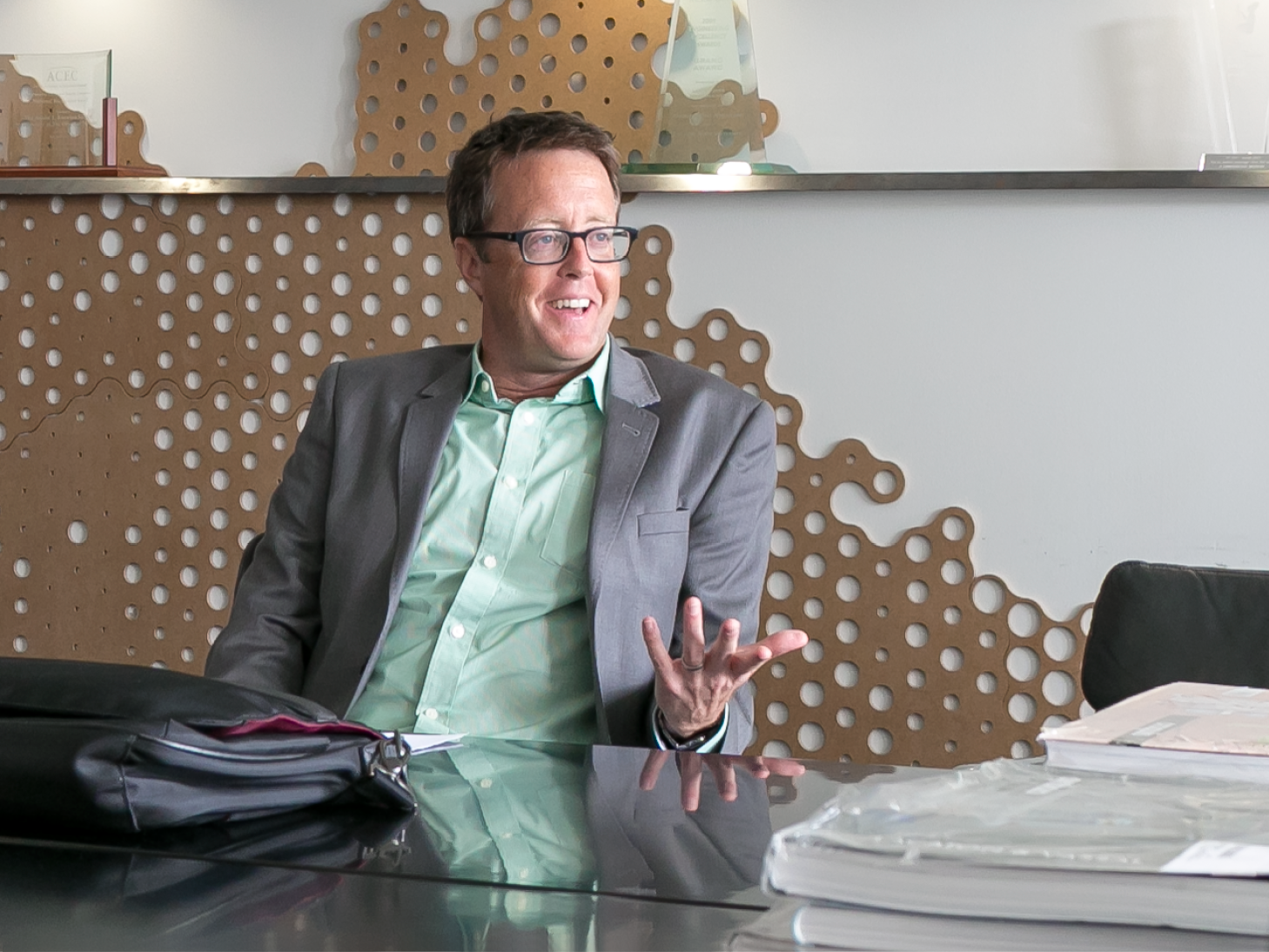Call for Applications: JAE Executive Editor
The Association of Collegiate Schools of Architecture (ACSA) seeks a dynamic executive editor for the Journal of Architectural Education (JAE), the leading scholarly publication about architectural education. Founded in 1947, JAE is the oldest, continuously operating journal of its kind. It is a platform for architectural educators, scholars, designers, writers, and organizers committed to the ongoing transformation of architectural education and the culture of architectural research toward an inclusive, just, and sustainable future.
The executive editor will have the opportunity to shape architectural scholarship, education, and practice with the support of an energetic Editorial Board, an established professional association, and a major academic publisher.
The journal is published two times each academic year and is widely distributed as a benefit of ACSA membership. Each issue features double-blind peer-reviewed contributions currently presented under multiple categories: Essay, Design, Narrative, and Image. Additional published content presently includes solicited opinion essays, translations, interviews, and reviews. The incoming executive editor also has the opportunity to enhance the journal’s core activities with new initiatives, as previous executive editors have done, for example, with the JAE Fellows program and the 75th-anniversary anthology publication.
The executive editor has final responsibility for JAE’s editorial and graphic content, oversees production with ACSA and the publishers, and leads the Editorial Board, whose members provide counsel regarding manuscript review, article selection, and editorial direction. The executive editor nominates members of the Editorial Board, selected by vote from current Editorial Board members through an application process, for appointment by the ACSA Board of Directors and is expected to work effectively with the Editorial Board and the ACSA Board of Directors. ACSA provides the executive editor with financial support and editorial assistance.
Qualifications for the executive editor include: a strong vision for the journal; a recognized record of research and publications; significant editorial experience; active involvement in architectural education; and a keen insight into the broad issues affecting architectural education, culture, and practice now and in the future.
The term of service is three years, with the possibility of a second, and final, three-year term. The new editor will assume responsibilities as executive editor–designate beginning September 1, 2025, assuming full editorship with the fall 2026 issue (Volume 80, Issue 2). During the transition period, the executive editor–designate will be responsible for the review of all newly submitted manuscripts.
A search committee drawn from the ACSA Board of Directors and JAE Editorial Board will review and evaluate all candidates, and send its final recommendation to the ACSA Board of Directors for approval. The members of the search committee are:
- Tania Gutiérrez-Monroy, University of British Columbia, JAE Editorial Board member
- Ersela Kripa, Texas Tech University, JAE Editorial Board member
- Vivian Lee, University of Toronto, ACSA at-large director
- Dahlia Nduom, Howard University, ACSA at-large director
- June Williamson, City College of New York, 2026-27 ACSA president
The executive editor is appointed by the ACSA Board of Directors and reports to the board through its Executive Committee.
TO APPLY candidates must download the cover sheet and submit the following items in a single PDF in the following order by the February 26, 2025, deadline:
- Cover sheet
- A statement of interest that addresses your potential to contribute to both the editorial mission of the JAE and the journal’s commitment to justice, equity, and inclusion (2 pages, maximum)
- A current curriculum vitae
- 2-3 examples of past publications
Send all materials to jae.search@acsa-arch.org. Additional materials may be requested as part of the screening process. Online interviews to be conducted beginning in March 2025.
For more information about the journal’s current policies and practices, please visit www.jaeonline.org. Questions regarding the search, editorial duties, compensation, or terms of this position can be directed to Michael Monti, Executive Director, ACSA, mmonti@acsa-arch.org.

 Study Architecture
Study Architecture  ProPEL
ProPEL 


